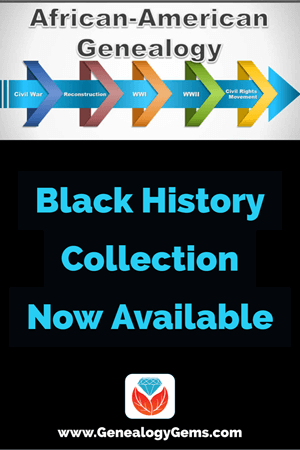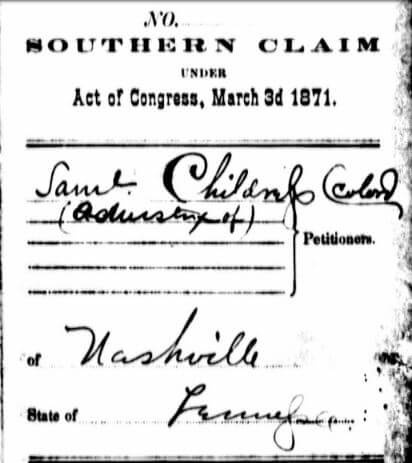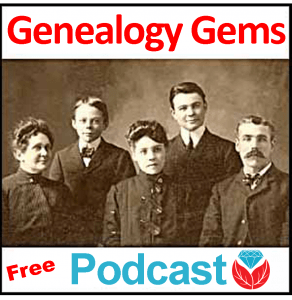by Sunny | Feb 9, 2018 | 01 What's New, African-American, Ancestry, FamilySearch, Freebies
Explore these African and African American genealogy records in celebration of your family history and Black History Month!
Also this week: see new records online for Southern Claims Commission, GA, NY and VA as well as African heritage sites, Liberia and South Africa. And check out a limited-time offer from Fold3 to view its Black History collection for free.
Black History Collection free this month at Findmypast.com
“In recognition of Black History Month, Fold3 is making the records in its Black History collection available for free through the end of February,” states a recent company announcement. “The Black History collection gives you access to more than a million documents, records, and photos that help to capture the African-American experience during five eras of American history: Slavery, The Civil War, Reconstruction & Jim Crow Laws, World War I & II, and the Civil Rights Movement.
The Fold3 announcement lists several of its richest collections, and we think they’re worth noting individually:
- Danish West Indies – Slavery and Emancipation: These records cover the institution of slavery and the emancipation of slaves in the Virgin Islands during Danish rule, 1672-1917.
- Suppression of Slave Trade and Colonization (1854-72): These records cover the institution of slavery and the emancipation of slaves in the Virgin Islands during Danish rule, 1672-1917.
- Amistad – Federal and Supreme Court records: Court records pertaining to the claims of salvage for the Spanish slave schooner “Amistad,” seized in 1839 by the US Navy.
- American Colonization Society: Documents relating to the American Colonization Society, 1792-1964, an organization best known for its role in founding Liberia.
- Board of Commissioners – Emancipation of Slaves in DC: Records of the Board of Commissioners for the Emancipation of Slaves in the District of Columbia, 1862-63.
- Court Slave Records for DC: Records of the U.S. District Court for the District of Columbia Relating to Slaves, 1851-63, including emancipation and manumission papers.
- South Carolina Estate Inventories and Bills of Sale, 1732-1872: South Carolina court records relating to estate and personal assets.
- Colored Troops: Compiled military service records of volunteer Union soldiers serving in various colored units in the Civil War, including the United States Colored Troops (USCT).
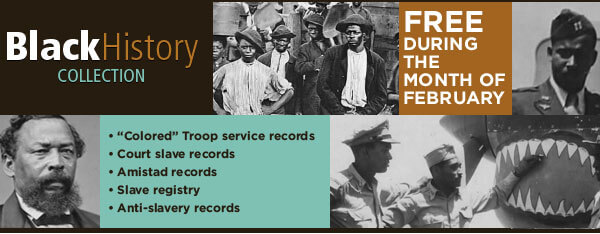
African American genealogy records newly published online
U.S. Southern Claims Commission. The “genealogy giant” Ancestry.com has updated its collection of U.S. Southern Claims Commission, Disallowed and Barred Claims, 1871-1880. According to the collection description, “In 1871 the U.S. government created the Southern Claims Commission, an organization through which southerners could file claims for reimbursement of personal property losses due to the Civil War. Claims could only be filed by residents of AL, AR, FL, LA, MS, NC, SC, TN, TX, VA and WV.” Your African American ancestors may be among those listed therein: “Each claimant was required to provide witnesses. The witnesses had to answer the same 80+ questions that the claimant had to answer. Many of these witnesses were former slaves whose names rarely appear on any other legal document from the Civil War era. They also provided names and dates for family members who often lived on other plantations.”
Georgia. “The records of the Georgia Association of Educators (1921-2015)…are open for research,” reports the George State University Library. “The collection, comprised of unique documents and photographs, provides an in-depth look at the history of the organization that represents many of Georgia’s teachers. The collection includes convention proceedings, contracts and constitutions, meeting minutes, newspaper clippings, audio-visual materials, photographs, and periodicals.” Among the topics covered are the mergers of the previously-segregated black and white state teachers’ associations and integration of public schools about 1970. Click here to explore the finding aid to this collection.
New York. A first-of-its-kind free database documents those involved in the institution of slavery in New York from the earliest times. The New York Slavery Records Index “is a searchable compilation of records that identify individual enslaved persons and their owners, beginning as early as 1525 and ending during the Civil War,” reports the site. “Our data come from census records, slave trade transactions, cemetery records, birth certifications, manumissions, ship inventories, newspaper accounts, private narratives, legal documents and many other sources. The index contains over 35,000 records and will continue to grow as our team of John Jay College professors and students locates and assembles data from additional sources.” A hat-tip to WGRZ.com for publishing this article that alerted us to this valuable new resource.
Virginia. The Journal of Blacks in Higher Education reports, “Students in an introduction to public history class at Roanoke College in Salem, Virginia, created a digital archive of newspaper and other clippings collected during the civil rights era by the Hill Street Baptist Church in Roanoke. The project documents efforts in the area to desegregate lunch counters, movie theaters, and public schools during the 1950s and 1960s.”
African Genealogy and History Resources Now Online
African world heritage sites. CNN.com recently reported on a new online resource that seeks to provide digital preservation and access to important archaeological sites across Africa. “The archaeological wonders of the world offer a rich window into the past,” states the article. “But many are crumbling, weed-laden and victim to vandalism and conflict….Concerned with the decay of African heritage sites, The Zamani Project, based at the University of Cape Town, South Africa, is seeking to immortalize historic spots in three-dimensional, virtual reality-ready models…. Presently, they’ve mapped around 16 sites including Lalibela in Ethiopia, Timbuktu in Mali and Kilwa in Tanzania.”
Liberia. The free “genealogy giant” FamilySearch.org has added over 24,000 new record images and nearly 27,000 newly-indexed names to its free collection of Liberia, Marriage Records, 1912-2015. Documents include “applications for marriage licenses, marriage licenses, marriage returns, documents certifying marriages from Liberia.”
South Africa. FamilySearch has also updated two of its existing South Africa records collections with more indexed names: South Africa, Cape Province, Kimberley, Probate Records of the Supreme Court, 1871-1937 and South Africa, Cape Province, Probate Records of the Master of the High Court, 1834-1989.
Listen to more African American genealogy topics
The free Genealogy Gems Podcast and the Genealogy Gems Premium Podcast have both featured inspiring interviews on African African genealogy research. We recommend these:
Genealogy Gems Podcast episode #201: Angela Walton-Raji joins Lisa Louise Cooke with tips for interviewing African American relatives, learning important history and getting past that 1870 brick wall into the era of American slavery. Listen for free!
Genealogy Gems Podcast episode #200: A university professor shares his discoveries about a mother and young daughter separated by slavery. Learn how he pieced together their story from a poignant family heirloom found at a flea market.
Genealogy Gems Premium Podcast episode #130: Oprah Book Club author Lalita Tademy talks about her book Citizen’s Creek, a novel about an African American and Creek Indian family. This special episode (and all Premium Podcast episodes) is something extra just for our Premium subscribers; click here to learn how to subscribe.
Disclosure: This article contains affiliate links and Genealogy Gems will be compensated if you make a purchase after clicking on these links (at no additional cost to you). Thank you for supporting Genealogy Gems!
by Lisa Cooke | Feb 3, 2017 | 01 What's New, African-American, Records & databases
American slave records contained in the Digital Library on American Slavery at the University of North Carolina Greensboro have recently been updated. Also in new and updated genealogical record collections this week, records from Australia, United States, and Ireland.
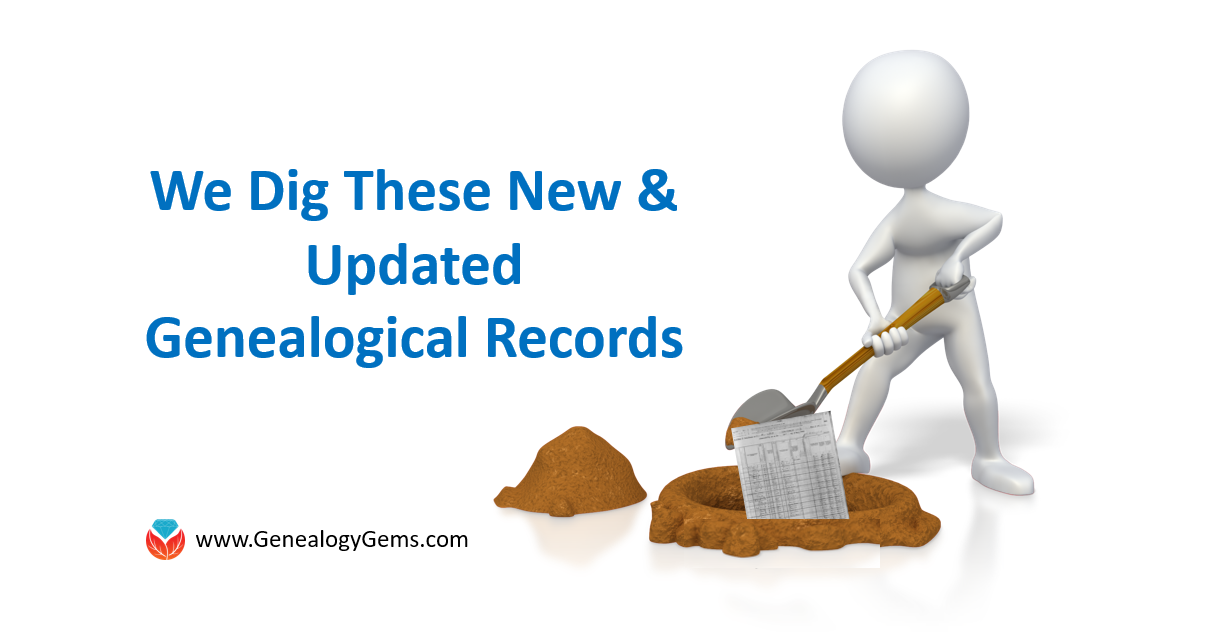
United States – North Carolina – American Slave Records
An expansion of the University of North Carolina Greensboro University Libraries’ Digital Library on American Slavery has added bills of sales. These records index the names of enslaved people from across North Carolina. When complete the project will include high resolution images and full-text searchable transcripts. This digital library also includes other important record projects such as:
Race and Slavery Petitions Project – A searchable database of detailed personal information about slaves, slaveholders, and free people of color. The site provides access to information gathered over an eighteen-year period from petitions to southern legislatures and country courts filed between 1775 and 1867 in the fifteen slave-holding states in the United States and the District of Columbia.
North Carolina Runaway Slave Advertisements, 1750-1840 Project – Online access to all known runaway slave advertisements (more than 2300 items) published in North Carolina newspapers from 1751 to 1840. Digital images, full-text transcripts, and descriptive metadata, are included in this searchable database.
The Trans-Atlantic Slave Trade Database – Among other things, this database identifies 91,491 Africans taken from captured slave ships or from African trading sites. It includes the African name, age, gender, origin, country, and places of embarkation and disembarkation of each individual.
People Not Property – Slave Deeds of North Carolina – When complete, People Not Property – Slave Deeds of North Carolina will include high resolution images, and full-text searchable transcripts. Though still in the working stages, they hope to open the project to states beyond North Carolina, creating a central location for accessing and researching slave deeds from across the Southern United States. Keep a watchful eye on this exciting endeavor!
Australia – Victoria – Court Session Records
Over 3 million Victoria Petty Sessions Registers records have just been released in association with Public Records Office Victoria to coincide with Australia Day (January 26th) 2017. This collection includes both transcripts and scanned images of original court registers. If your ancestors had a run-in with the law, you may find them here.
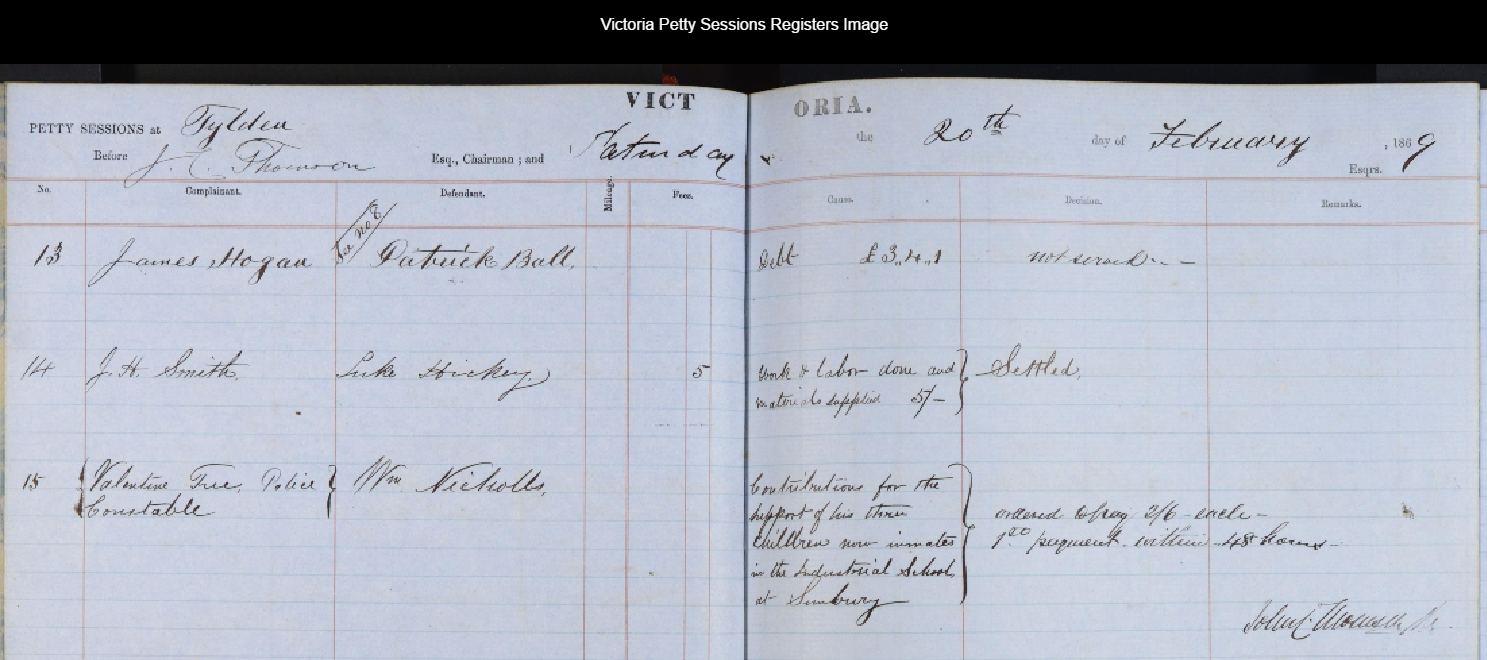
Snapshot of Victoria Petty Sessions Record from Findmypast.
This collection covers both civil and minor criminal cases. The Court of Petty Sessions’ brief was wide, making these records a powerful resource for those with Australian ancestors. Your ancestors may appear as a witnesses, defendants, complainants, or even as a Justice of the Peace. Cases include merchants who had not paid duty on their goods, to workers suing for unpaid wages. Debts were also collected and disputes settled. Public drunkenness was a common offence, as was assault and general rowdiness.
The registers available in this collection cover the years between 1854 and 1985. Transcripts will list the event date, your ancestor’s role (whether plaintiff, defendant, etc.), cause or reason for the case, the court it was held at, the date, and a brief description. Images may provide additional details.
Australia – Queensland – Passenger Lists
Also at Findmypast, Queensland Custom House Shipping 1852-1885 passengers and crew with over 107,000 records of passengers and crew that made voyages between 1852 to 1885.
These transcripts list information taken from original documents held by the National Archives of Australia and will allow you to discover your ancestor’s age, nationality, occupation, date and port of arrival, date and port of departure, and the name of the ship they sailed on.
United States – New York – Passenger Lists
The collection
New York, Book Indexes to Passenger Lists, 1906-1942 at FamilySearch consists of images of the indexes to passenger manifests for the port of New York. The indexes are grouped by shipping line and arranged chronologically by date of arrival. Additional images will be added as they become available.
United States – Ohio – Tax Records
The records included in the Ohio Tax Records, 1800- 1850 at FamilySearch contain both the index and images to taxation records as recorded with the County Auditor of each county. The records in this collection cover the years 1800 to 1850. However, the majority are from the years 1816 through 1838. Entries are recorded in voucher books and one person per page. Included are the following Ohio counties:
- Ashtabula
- Belmont
- Carroll
- Columbiana
- Guernsey
- Harrison
- Jackson
- Jefferson
- Monroe
- Trumbull
- Washington
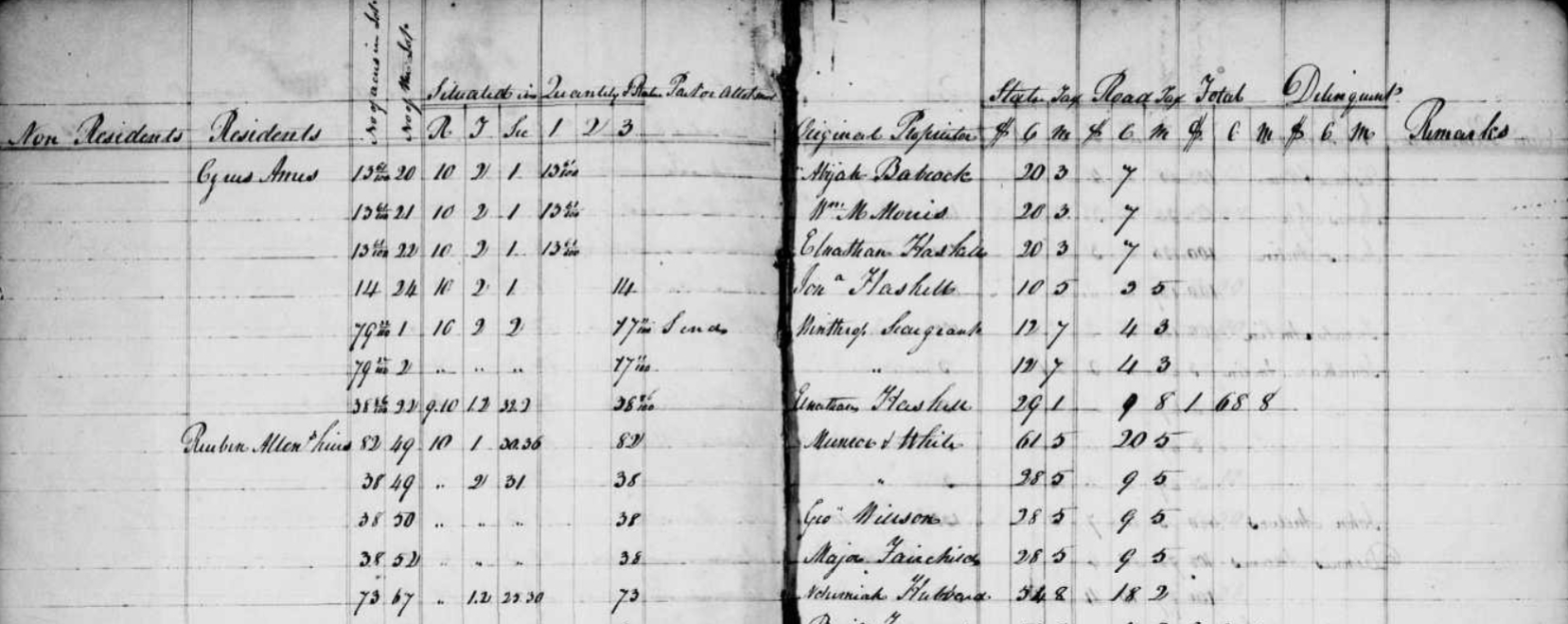
Snapshot of an Ohio Tax Record via FamilySearch.org
Governments created tax records that vary in content according to the purpose of the assessment. Most are based on personal property, real estate, and income. They are particularly useful for placing your ancestor in a particular area year after year, hopefully leading you to other helpful records.
United States – Massachusetts – Revolutionary War Index Cards
FamilySearch has updated the Massachusetts, Revolutionary War, Index Cards to Muster Rolls, 1775-1783 collection this week. These index card abstracts are of accounts, muster and pay rolls, and descriptive lists and accounts, of soldiers who served in Massachusetts companies and regiments during the Revolutionary War, 1775-1783.
Examples of Card Abstract Types
- An Account -Mass. Archives Depreciation Rolls
- Company Return – Coat Rolls Eight Months Service
- Continental Army Pay Accounts – Continental Army Books
- A Descriptive List – Mass. Muster and Pay Rolls
- Lexington Alarm Roll – Lexington Alarms
- List of Men Mustered – Mass. Muster and Pay Rolls
- List of Men Raised to Serve in the Continental Army
- Muster and Pay Roll
- Muster
- Order for Bounty Coat – Coat Rolls Eight Months Service Order
- Order – Mass. Muster And Pay Rolls
- Pay Abstract – Mass. Muster and Pay Rolls
- Pay Roll
- Receipt for Bounty – Mass. Muster and Pay Rolls
- A Return
- Statement of Continental Balances
Ireland – Newspapers
This month’s enormous Irish Newspapers update at Findmypast contains over 1.2 million articles. Seven brand new titles have also been added including the Leinster Leader, Donegal Independent, Kildare Observer & Eastern Counties Advertiser, Wicklow News-Letter & County Advertiser, Longford Journal Wicklow People, and the Ballyshannon Herald.
Newspapers are a great source for vital information when records cannot be found. To learn more about using newspapers for genealogy research, read Lisa Louise Cooke’s top-notch tips in Everything You Need to Know About How to Find Your History in Newspapers.
by Lisa Cooke | Sep 19, 2013 | 01 What's New, African-American, Ancestry, DNA, Immigration
AncestryDNA announced last week that it has been able to identify six unique historic populations in West Africa. It’s a breakthrough they call a “finer-resolution genetic ethnicity estimate for individuals with West African ancestry.” They have even used this technology to start connecting the dots between those groups and millions of African-Americans whose ancestral paper trail was annihilated during the era of slavery.
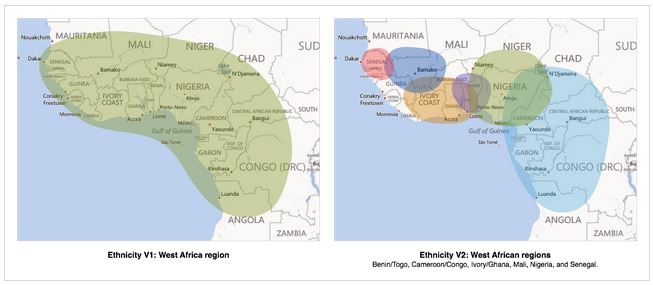
For this latter development, the AncestryDNA team uses the “cluster genealogy” approach: the concept that people from the same location often migrated to the same areas. Of course, slavery forced apart families and other natural migration groups, both in Africa before the crossing and in the U.S. or other destinations. And the few records that remain of many of these folks and their enslaved descendants don’t include full names, place of origin or other data we rely on to make family connections. (Learn more about how to research African-American roots in Genealogy Gems Podcast Episode 159 with Dr. Deborah Abbott.)
It’s encouraging to read that AncestryDNA has had some success hooking up regional groups of African-Americans with specific areas of Africa. “Though this project is still in its infancy, the science team has made some progress,” AncestryDNA reports. “First, we looked at the birth locations of individuals in the trees of all African Americans. Then, we looked for locations where, relative to all African Americans, there appeared to be an over-representation of birth locations in trees of individuals with a particular West African ancestry. For individuals with Senegalese genetic ethnicity, we found what seems to be an over-representation of birth locations in South Carolina and Georgia in the 1700’s and 1800’s.”
by Lisa Cooke | Sep 3, 2013 | 01 What's New, Inspiration, Irish, Who Do You Think You Are?
 If you’re like me, you were happy to see the return of Who Do You Think You Are? to our TV lineup this past summer. You might have thought to yourself as you watched, “They make it look so easy! I wonder how long it took them to find that record?”
If you’re like me, you were happy to see the return of Who Do You Think You Are? to our TV lineup this past summer. You might have thought to yourself as you watched, “They make it look so easy! I wonder how long it took them to find that record?”
Well there have been some great articles written by the researchers behind the scenes at WDYTYA? For example, this post tells how it took more than 1000 hours of research for Cindy Crawford’s one-hour episode.
“It took months to research Cindy’s tree,” says the post at ProGenealogists, Ancestry’s official research arm. “Only the records that were essential stepping stones could be included in her story, and a few important steps we took along the way didn’t make the final cut.”
A post on Matthew Broderick’s episode, which aired in 2010, introduces us to using military records to find our family history. Matthew appeared in the 1989 Civil War film “Glory” but his great-great-grandfather experienced the real thing: he died while serving as a Union soldier. Other episodes bring up other episodes in the history of the world: Lisa Kudrow’s past includes the horrors of the Holocaust, Rosie O’Donnell’s covers the experience of a poor family in an Irish workhouse that was able to escape to Canada; Emmitt Smith’s probes the dark depths of African-American slavery. The post on Emmitt is a particularly detailed account of how this family was found.
You can click on similar posts relating to other WDYTYA guests, both past and present: Chris O’Donnell, Zooey Deschanel, Chelsea Handler, Christina Applegate, Kelly Clarkson, Tim McGraw, Vanessa Williams, Sarah Jessica Parker, Lisa Kudrow, Brooke Shields, and Susan Sarandon.
If you haven’t tuned in to WDYTYA yet, check it out on TLC on Tuesdays at 9pmEST. Or learn more about it and watch episodes at TLC’s website.
by Lisa Cooke | Apr 18, 2013 | 01 What's New, Book Club
Do you have relatives who served in or were affected by the American Civil War? Check out this book by Library of Congress staffers, who draw on the unmatched resources of the national library to tell this epic story.
The Library of Congress Illustrated Timeline of the Civil War by Margaret E. Wagner quotes vivid first-hand accounts. You’ll read about the smells of war, from baking to bodily functions. You’ll learn about the women behind the scenes whose lives were in constant upheaval and uncertainty. Comments from hospital workers describe the mighty effects of war on the wounded. Intermingled in the war activity are the struggles of free blacks, those being emancipated and black women and men who supported the Union effort as soldiers, nurses and more. It’s a fascinating blend of story and picture, told in a timeline format to help family historians put their ancestors’ experiences in context. For those of us who don’t have firsthand account by our ancestors, these voices help bring to life events and experiences our relatives may have faced. Also available in for the Kindle
by Margaret E. Wagner quotes vivid first-hand accounts. You’ll read about the smells of war, from baking to bodily functions. You’ll learn about the women behind the scenes whose lives were in constant upheaval and uncertainty. Comments from hospital workers describe the mighty effects of war on the wounded. Intermingled in the war activity are the struggles of free blacks, those being emancipated and black women and men who supported the Union effort as soldiers, nurses and more. It’s a fascinating blend of story and picture, told in a timeline format to help family historians put their ancestors’ experiences in context. For those of us who don’t have firsthand account by our ancestors, these voices help bring to life events and experiences our relatives may have faced. Also available in for the Kindle
Catch the highlights of this book in this lecture by author Margaret Wagner, who calls the Civil War “the greatest and most costly struggle in U.S. history” and a major turning point in national history. There’s a link to the transcript for those who want to read or quote the talk.


